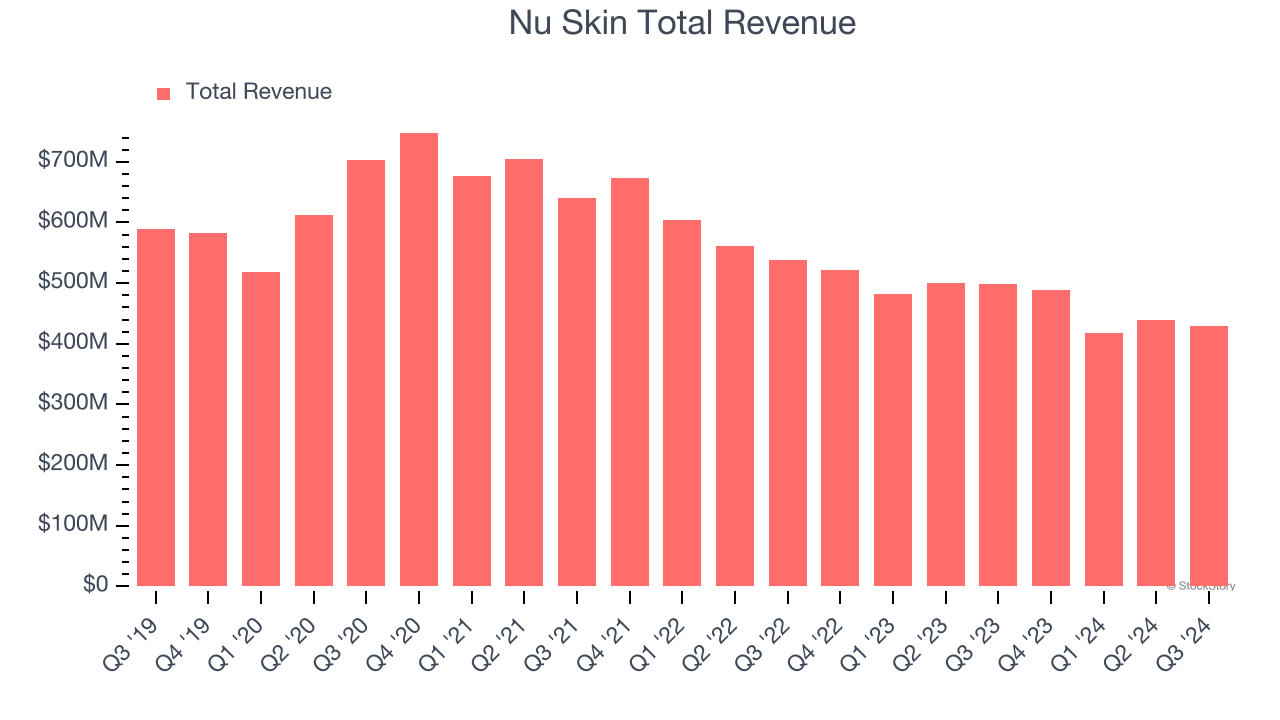
Personal care company Nu Skin (NYSE: NUS) will be reporting earnings tomorrow after the bell. Here’s what investors should know.
Nu Skin missed analysts’ revenue expectations by 2.4% last quarter, reporting revenues of $430.1 million, down 13.8% year on year. It was a softer quarter for the company, with a significant miss of analysts’ EBITDA and EPS estimates.
Is Nu Skin a buy or sell going into earnings? Read our full analysis here, it’s free.
This quarter, analysts are expecting Nu Skin’s revenue to decline 10.8% year on year to $436 million, a further deceleration from the 6.5% decrease it recorded in the same quarter last year. Adjusted earnings are expected to come in at $0.22 per share.

Analysts covering the company have generally reconfirmed their estimates over the last 30 days, suggesting they anticipate the business to stay the course heading into earnings. Nu Skin has missed Wall Street’s revenue estimates five times over the last two years.
Looking at Nu Skin’s peers in the personal care segment, some have already reported their Q4 results, giving us a hint as to what we can expect. e.l.f. Beauty delivered year-on-year revenue growth of 31.1%, beating analysts’ expectations by 7.8%, and Estée Lauder reported a revenue decline of 6.4%, topping estimates by 0.7%. e.l.f. Beauty traded down 19.7% following the results while Estée Lauder was also down 20.4%.
Read our full analysis of e.l.f. Beauty’s results here and Estée Lauder’s results here.
Investors in the personal care segment have had fairly steady hands going into earnings, with share prices down 1.5% on average over the last month. Nu Skin is down 5.5% during the same time and is heading into earnings with an average analyst price target of $6.88 (compared to the current share price of $6.66).
Unless you’ve been living under a rock, it should be obvious by now that generative AI is going to have a huge impact on how large corporations do business. While Nvidia and AMD are trading close to all-time highs, we prefer a lesser-known (but still profitable) semiconductor stock benefiting from the rise of AI. Click here to access our free report on our favorite semiconductor growth story.




